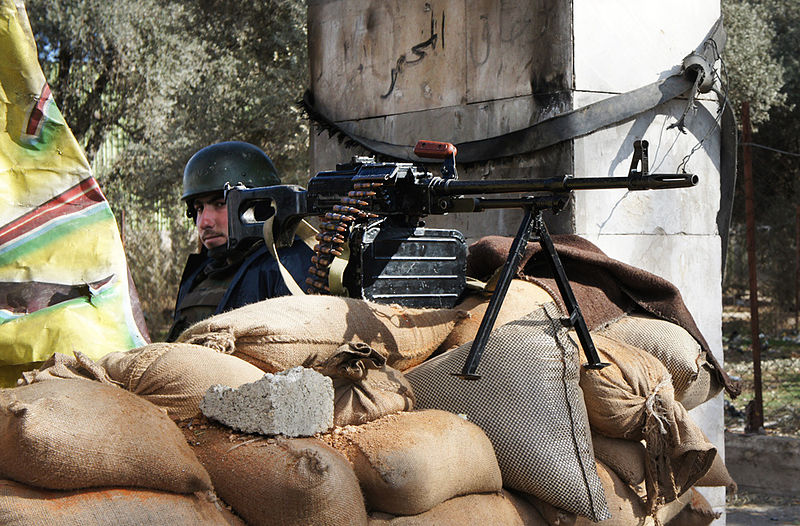Syrian National Council, Revolution in Exile
 The “Syria is not Libya” argument against intervention that seems to be taken up by NATO, along with sustained failure of the U.N. Security Council to reach a unanimous vote on intervention in Syria has prolonged the struggle for a solution to the situation. Furthermore, last week, the head of Syria’s most visible yet seemingly rifting opposition force, the Syrian National Council (SNC) noted that he would offer to resign from the post he’s held since September once a deputy was found. Amidst a continued crackdown on peaceful protests, a raid on one of the largest student protests in Aleppo, and an impasse in the ceasefire deal struck by joint Arab League and UN special envoy Kofi Annan, this leadership change in the SNC can initially present itself as yet another cause for the prolonged unrest in Syria.
The “Syria is not Libya” argument against intervention that seems to be taken up by NATO, along with sustained failure of the U.N. Security Council to reach a unanimous vote on intervention in Syria has prolonged the struggle for a solution to the situation. Furthermore, last week, the head of Syria’s most visible yet seemingly rifting opposition force, the Syrian National Council (SNC) noted that he would offer to resign from the post he’s held since September once a deputy was found. Amidst a continued crackdown on peaceful protests, a raid on one of the largest student protests in Aleppo, and an impasse in the ceasefire deal struck by joint Arab League and UN special envoy Kofi Annan, this leadership change in the SNC can initially present itself as yet another cause for the prolonged unrest in Syria.
The SNC, which claims to be leading the uprising from outside Syria, is battling between leading an opposition movement against Assad’s authoritarian grip and gaining credibility among its civilian population and the Western world. The SNC was formed shortly after the start of protests fifteen months ago and is headquartered in neighboring Turkey. As conditions in Syria have become increasingly violent over the past year, reaching a reported U.N. death toll of 10,000, the resistance has begun to arm itself. The militarization of the revolution, which initially took the form of peaceful protest, currently serves as the only means for self-defense and considerable solidarity against Assad.
The Syrian regime seeks to discredit the SNC by associating it with Al-Qaeda, and some protestors who’ve taken to the streets in Syria do not identify with an organization that consists mostly of exiles. Christians, Alawites, and Shiites who are resolved with the current status quo have also been reticent in supporting the uprising. A key activist group called the Local Coordination Committees threatened to withdraw from the SNC on Thursday, claiming that the council was not living up to the spirit of the revolution.
But back in October, a member of the SNC speaking at an on-campus panel dedicated to Syria awareness acknowledged that while businesses and the elite in cities such as Damascus were not out in the street in visible numbers, they were indeed financing the opposition. Is this the kind of support needed to help stop the bloodshed? While claims that SNC leaders are not of “the people” can be valid, the SNC’s strategic presence outside the chaos in Syria grants it the competence to focus some of its resources and time on reforming policy rather than constantly battling the regime on the ground. Furthermore, the SNC’s composition of seven main political groups allows for more opportunity for solidarity among these various anti-Assad factions.
Libya’s National Transitional Council had formed as a political face to the opposition under brutal conditions of Qaddafi’s regime and soon after, it gained international recognition. How can this happen in Syria? Whether the current situation results in more violence or whether a ceasefire is achieved, it's clear that a more domestically credible opposition is needed for international recognition of the SNC and subsequent alienation of the current regime. Syrian opposition leaders should come to the forefront to assure the people of a more representative council and an alternative to its current leader, Ghalioun, who is willing to step down.
One argument I find unconvincing is that we should stick to Assad for fear of what’s to come. An uprising that has continued for more than a year now cannot be silenced, and the lives of thousands killed will not be forgotten. Assad must be held accountable for his actions. I see the SNC’s current leader’s willingness to step down not as a sign of weakness but as a sign of openness for reform in the otherwise authoritarian political atmosphere. Whether or not the SNC is able to gain credibility at this troubling moment in Syrian politics should not be a hindrance to the overall movement to achieve what protestors have been seeking since February of last year.

